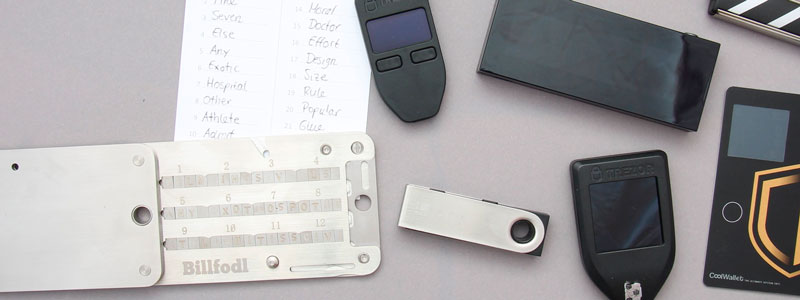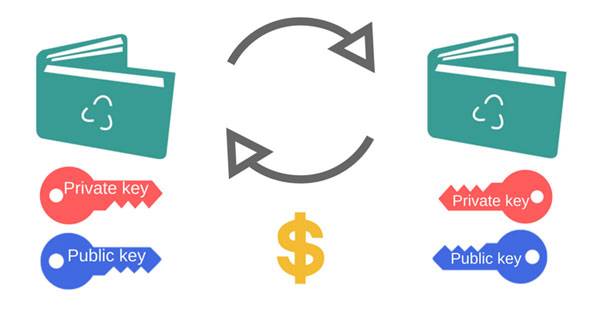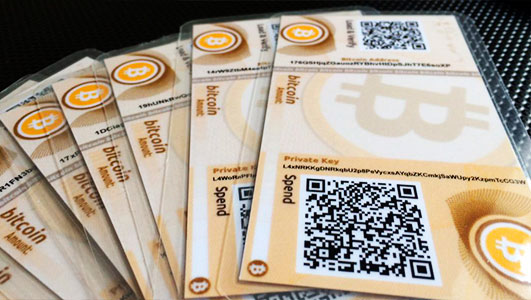
In 2019, perhaps, there was practically not a single person left who had not heard of cryptocurrencies. Moreover,a significant part of the population has either become the owners of some coins purely out of interest, or often thinks about how to join this trend.
But just choose and buy one or moreThere are few coins of interest, because they need to be stored somewhere. And, since official banks cannot yet offer everyone crypto-currency accounts under reliable protection, and news about hacker attacks and crypto-fraudsters appear almost every day, the issue of choosing a cryptocurrency wallet must be approached very responsibly.
At first glance, there are many options: some coins can be stored on your own computer or on a USB flash drive, others only on online wallets, or even print a QR code and “materialize” the digital currency. There are also multicurrency wallets that support many coins on one or different protocols, “hot” wallets, whose users have quick access to their assets, and can spend them at any time. A “cold” wallet involves long-term storage of coins without access by third parties.
In this article, we tried to answer the question “Where and how to store cryptocurrency in 2019” - below we will talk about each of the methods in more detail.
Computers, laptops and smartphones.

One of the oldest options for storing cryptocurrency — This is an offline wallet that is installed on the owner’s computer. It is worth noting that there are also two types of such wallets.
- The first ones involve downloading to a personalcomputer of the entire blockchain algorithm and are more secure. Naturally, use requires certain knowledge and skills. In addition, such wallets will take up a lot of space on your hard drive, which is definitely a big disadvantage. And if you imagine that you need wallets for several coins, then using this method will often be impractical.
- The second type of wallets that are installed onThe user's computer is called “thin” wallets. Such programs work with the cryptocurrency blockchain through third-party services and, accordingly, do not take up much space on the device. Another big advantage of lightweight wallets over “thick” ones is the ability to operate with several cryptocurrencies at once. Some of the most popular wallets of this class are Exodus, Jaxx, Electrum. In order to start using it, just go to the official website of the wallet, download it, decide on the server on which it will work and save the secret key in case you lose your password.
As for wallets on mobile devices,then they are similar in principle to the “thin wallets” mentioned above - they also represent a client application for working with the blockchain network.
Mobile crypto wallets are popular due toto your convenience. It is difficult to imagine a modern person without a smartphone. That is, the use of such wallets is a quick permanent access to their crypto assets. In addition, mobile wallets support the NFC module, and some projects are designed to convert crypts to fiat currencies. Thus, you can pay with cryptocurrency even in supermarkets that accept digital currencies.
Removable media — hardware wallets and flash drives

The second way is to store cryptocurrencies on removablecarrier. These can be either ordinary flash drives or special hardware wallets. The first type involves transferring a backup copy of an offline wallet to a USB flash drive or disk.
Since flash drives do not yet have wirelesscommunications, the only threat to your coins — This is a loss of storage media. That is, with due care, this is a very safe method. If you do not take into account the failure of your “wallet”, which can also happen with any electronic device.
The safest way is consideredthe use of hardware wallets for storing cryptocurrencies. This is a “cold” type of wallets, respectively, the funds on it are intended only for storage.
Trezor or Ledger are representativesthis type of device. They work on the principle of a token with an electronic signature used to confirm transactions. Many of these wallets support almost all types of cryptocurrencies, because they are essentially cells of information not connected to the blockchain. You can ensure the safety of your hardware wallet by hiding it securely or putting it in storage.
Online — wallets

One of the most popular “hot” typesCryptocurrency wallets can rightfully be called online wallets. Due to their simplicity, convenience and free distribution model, they are preferred by a huge number of users. Access can be obtained from any device anywhere in the world - such wallets do not require any space on computers or connection to gadgets.
Online wallets allow you to store a largenumber of different coins, and are often not limited to supporting one project. Almost each of the created cryptocurrencies has its own online wallet, which can be downloaded for free on the official website of the coin. But such simplicity and ease of use often comes at the cost of security.
Scripts, hacker attacks on the server and manyother threats can rob the owners of online wallets. To prevent this from happening, it is recommended to use all levels of protection on your wallet, and also not to store the entire amount there immediately. Limit yourself to the tools you need for everyday transactions.
Browser extensions

Another type of online wallets that are stillstand apart - these are cryptocurrency extensions for Opera, Chrome and Firefox browsers. Convenience plugins resemble popular online wallets, but their security remains at about the same level. There are frequent cases of hacking such applications with theft of user funds.
Cryptocurrency Browser Extensioneasy to use: just download the wallet of interest in the application store and install it on your device. Often, such wallets support almost all popular coins, so you only need to install one extension.
In addition to the hacking problem mentioned above, you should be more careful about your device and prevent the installation of dubious applications or viruses from entering the system.
Cryptocurrency exchanges

In addition to the above methods, it is also possible to store your digital assets on cryptocurrency exchanges. But this is perhaps the most dangerous option.
The fact is that exchanges with a daily turnover intens and hundreds of millions of dollars are a tidbit for scammers and are most often attacked. After all, having gained access to a single wallet of any user, a fraudster can remain empty-handed. But by breaking into the exchange, stealing personal data or running a malicious script on the server, an attacker can immediately become a multimillionaire.
If you are not going to engage in trading and make money on changes in the exchange rate of coins, then storing funds in exchange wallets does not make any sense.
Paper Cryptocurrency Wallets

One of the most interesting and most archaic ways to use cryptocurrencies is paper wallets. There are services that will give you such a cryptocurrency “ticket” with two QR codes:
- The first is for crediting coins to your account.
- The second is for making transactions on your part.
While this method can only be used forBitcoin, Ethereum and Litecoin. The main advantage is security. The only threat to your tokens in this case is the loss of a wallet. Unlike computer, mobile or hardware wallets, he will not be able to “fail”.
To get a paper wallet, you can use the services of one of the services by filling out a form. After which you will receive your wallet via mail or in person from a company representative.
Summarize
At first glance, such a variety of optionsstoring cryptocurrency can be more of a deterrent than an attraction. After all, safety depends on choice. In turn, we can give you several recommendations:
- Use only time-tested and reputable crypto-wallets, regardless of their type. Read user reviews and reviews;
- If you are not going to engage in trading, do not leave your funds on the accounts of exchanges;
- Use hardware wallets for storing large volumes of coins;
- Do not keep all your assets in one wallet;
- Take care to securely store the physical media on which your coins are located.
We hope that the material above helped you understand more about the types, methods and methods of storing cryptocurrencies. And simple tips will help you avoid troubles and financial losses.
The material was prepared by analysts of the independent international rating agency NEIRONIX.
</p> 5
/
5
(
1
vote
)





